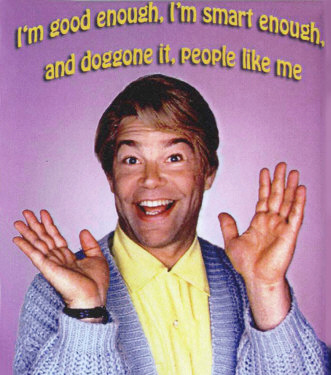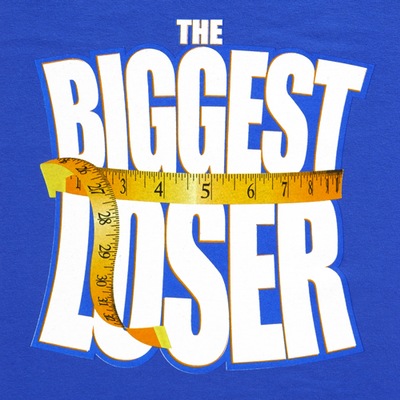Jenni Schaefer on Recovery
 Wednesday, May 12, 2010 at 02:59AM
Wednesday, May 12, 2010 at 02:59AM  It's been a busy few days for me and it's time for bed, but I read a great piece today on eating disorder recovery written by Jenni Schaefer that I want to point you all to! It is a pretty challenging read for those of you who may be contemplating giving up your eating disorder, for those of you who are in recovery, and for everyone in between. Follow this link to check it out, or see below for a copy/pasted version.
It's been a busy few days for me and it's time for bed, but I read a great piece today on eating disorder recovery written by Jenni Schaefer that I want to point you all to! It is a pretty challenging read for those of you who may be contemplating giving up your eating disorder, for those of you who are in recovery, and for everyone in between. Follow this link to check it out, or see below for a copy/pasted version.
If you are waiting for recovery to be easy, pull up a chair. You will be waiting for a long time. Ed (aka “eating disorder”) will gladly sit by your side and wait with you. To sabotage your success, Ed will even act like he supports certain aspects of your recovery.
If you like to read, Ed will say, “Just read this book about recovery, and you will be fine.” He will let you read the book, and congratulate you on doing it, but he won’t let you follow any of the guidance inside that will actually help you.
If you enjoy being around people, Ed will say, “Go to that therapy group, and get some help there.” Ed will let you go to the group, and may even let you participate, but he won’t let you talk about what you really need to talk about in order to heal.
If you like to surf the Internet, Ed will say, “Here’s a great website for you. Go ahead and join the online recovery forum.” He will let you join the online forum, and he will convince you that logging on is more important than eating.
Books, groups, and online resources can all be very helpful tools in your recovery. Just remember that recovery takes full commitment and real action. Real action is not simply opening a book, walking into a group room, or logging onto some website.
If you read a book about recovery, fully commit to the ideas in it that will make a difference in your life, not just the things that are easy to do. If you are in group therapy, talk about the issues that, deep inside, you know you need to discuss. If you are active in an online recovery community, use the positive support from online pals to hold yourself accountable to taking real action in your recovery. It’s not enough to just look at the tools—you really do have to use them.
Real action means drastic change. It also means realizing that Ed will sit by your side and try to sabotage you every step of the way. Ed will even use content from recovery books, groups, and websites to try to fuel his cause. Be aware of this and guard against it, and do what the books, groups, and websites suggest that is pro-recovery. Now that’s action.
The Big Book of Alcoholics Anonymous says, “Half measures availed us nothing.” If you only do eating disorder recovery half way, at most, you will get a half way recovery from your eating disorder. In my experience, you won’t even get that.
During early recovery, I believed that insight would inspire change. I thought that if I just knew enough about eating disorders, and understood myself, I would get better. I learned as much as I could from all of the resources available to me, and I waited for a magical change. I waited for the urge to binge to just go away. I waited to fall in love with my body. I waited for my fear of food to simply subside. And Ed waited right along with me.
I waited. I waited, and I waited some more. I would still be waiting today if intense pain had not pushed me into taking some real action. In my personal experience, pain and discomfort have most often been the motivating factors to get me to change. (For the record, I don’t think it has to be this way. That is why I write about my experiences. I hope that other people won’t have to reach the same level of pain I did before making changes.)
In my recovery, taking action meant tackling the food directly. I stopped purging after bingeing. I also did my best to not binge, which meant tolerating uncomfortable feelings (to say the very least). I ate without restricting. My body changed accordingly, and I felt awful. I felt so bad that I told my mom many times that I would rather be dead than to live that way any longer. I hated the way my body was changing, and I hated how it made me feel inside even more. I felt like a different person entirely --- someone I didn’t know or like. I felt trapped.
When we fully commit to recovery, we are signing up for hurt. Full commitment means we no longer make decisions based on how we feel in the short run (turning to Ed for immediate gratification), but instead we make decisions based on our long-term goals of health and a full recovery. In the beginning, success can actually feel fat and miserable. So stop waiting for things to be easy and start looking for the hard part. Tackling the difficult, ironically, is when the “easy” will find you. If you push through the pain and move all the way to the other side, you won’t have to keep facing the same hurt over and over again. You will be well on your way to freedom.
Life is, in fact, much easier on the other side of the eating disorder. I am not afraid of food, I don’t get the urge to binge, and I love my body. Yes, I said “love”! Today success feels strong and joyful, no longer fat and miserable. I can’t wait for you to get to this point, too.
And you can’t afford to wait either! So, stop waiting and start changing.
Appointed to the Ambassador Council of the National Eating Disorders Association, Jenni Schaefer is a singer/songwriter, speaker, and author of Life Without Ed and Goodbye Ed, Hello Me. She is a consultant with the Center For Change in Orem, Utah. For more information, visit www.jennischaefer.com.


